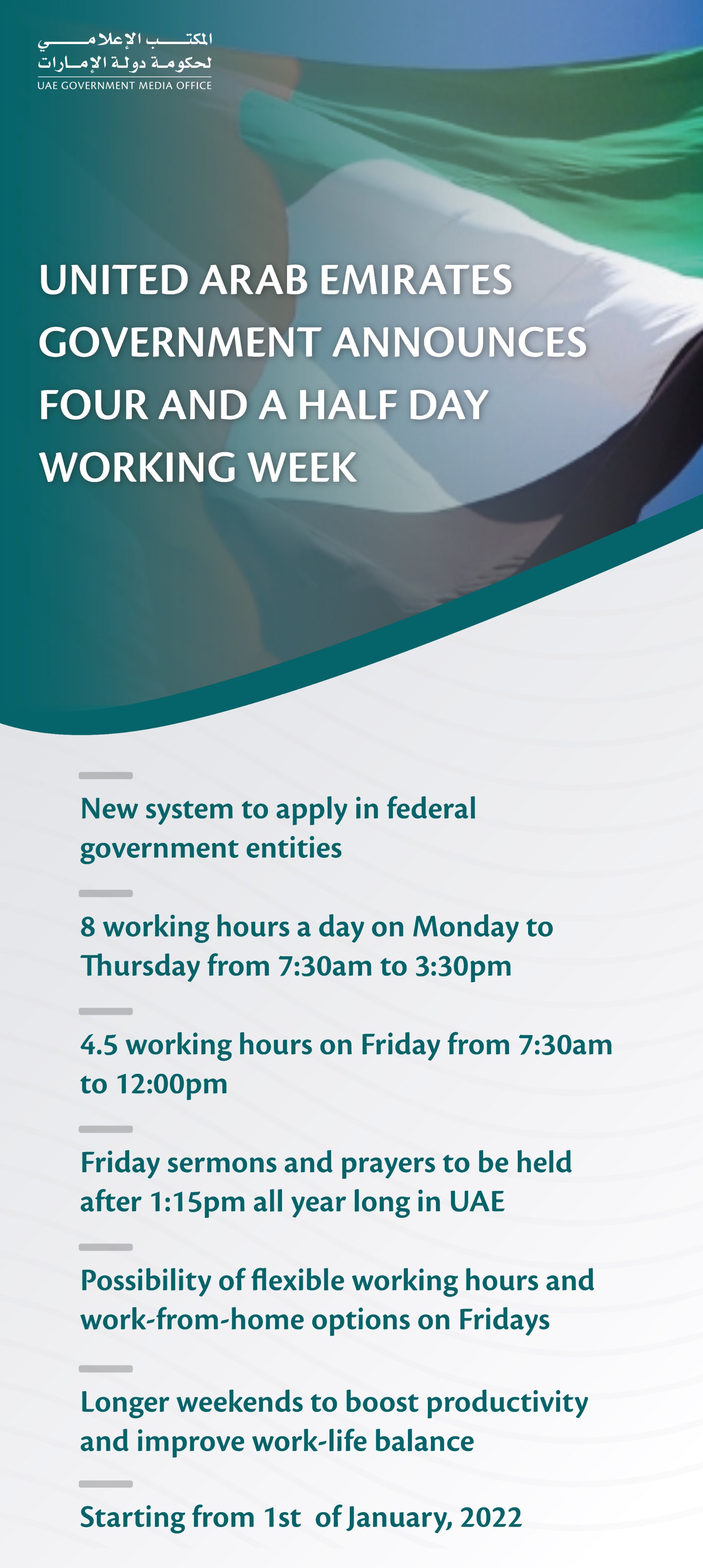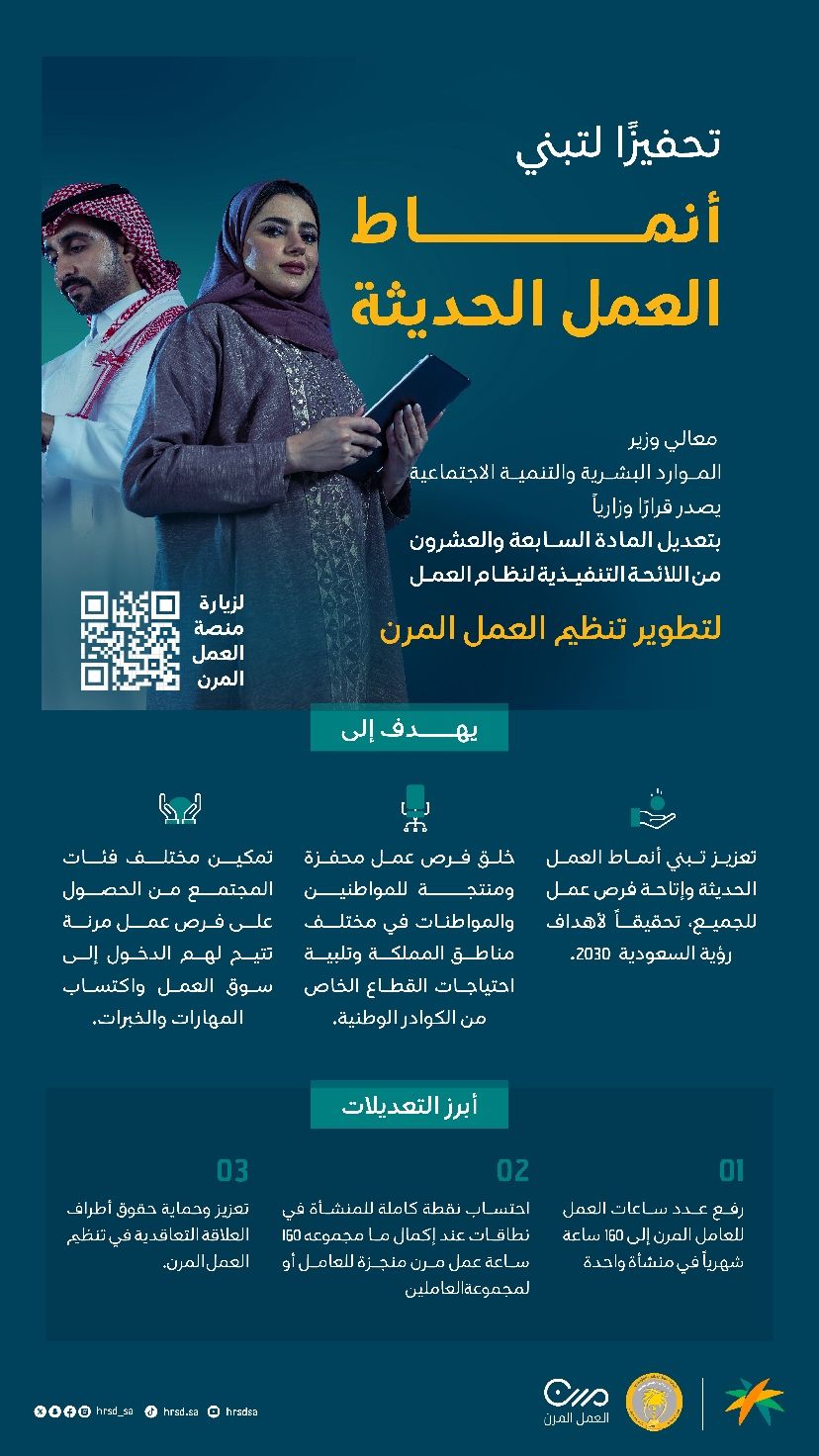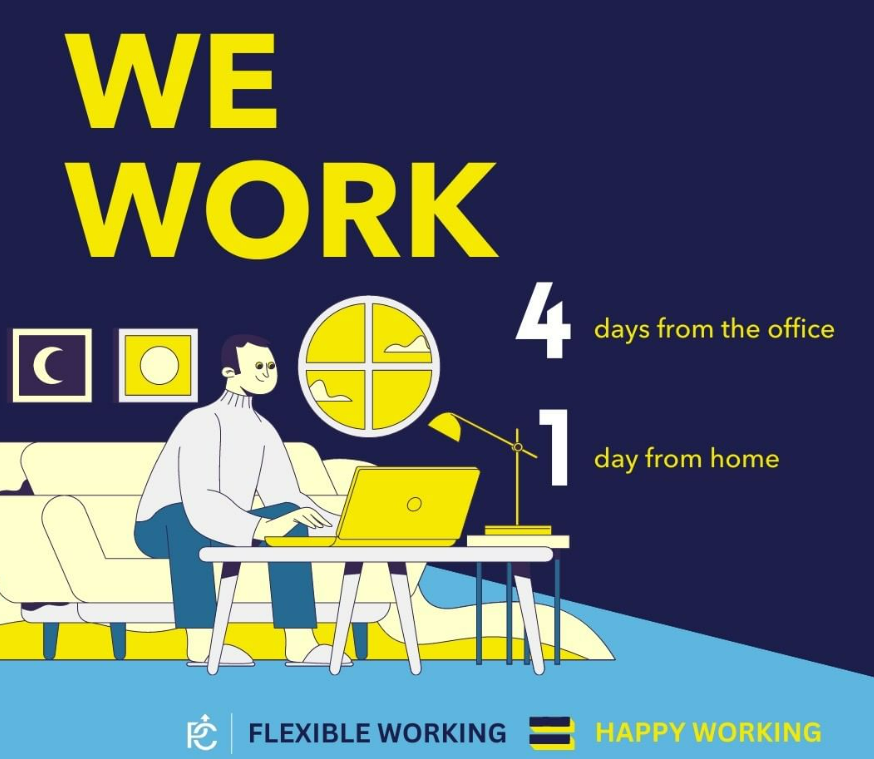
9 Middle East companies leading the four-day workweek & remote work culture
Strategic HREmployee RelationsCulture#RemoteWork#HRCommunity#Flexibility
The four-day workweek and remote work have been rapidly adopted worldwide, proving to benefit employee well-being, productivity, and job satisfaction. In the Middle East, particularly within the UAE and KSA, some organisations are leading this shift, using these policies to foster healthier work-life balance and attract top regional talent. By introducing more flexible work arrangements, these companies are aligning with global trends and setting a precedent for workplace innovation in the region.
UAE or KSA: Who is at the forefront of the four-day workweek?
The UAE has been a forerunner in this movement, adopting a four-and-a-half-day workweek for federal employees starting in January 2022. Fridays became a half-day to support religious observance while creating a more flexible weekend. Recently, many organisations and government sectors in the UAE have embraced a full four-day workweek, further encouraging work-life balance.

In KSA, while government is rapidly implementing and promoting 4-day workweek and flexible work hours, several of the largest private companies have begun experimenting with similar policies, including hybrid work schedules and compressed workweeks.

Companies leading the Four-Day Workweek and Remote Work
Companies that have adopted these policies have reported increases in productivity, reduced stress, and improved talent retention—all factors essential for competing in the fast-paced economies of the UAE and KSA.
The following companies stand out as pioneers in implementing the four-day workweek and remote work options, setting new standards for workplace culture and efficiency in the Middle East.
#1 Emirates Nature-WWF (UAE)
This conservation-focused NGO adopted a four-day workweek and flexible remote work arrangements, providing employees greater freedom to balance professional and personal commitments.
At Emirates Nature, employees enjoy many benefits, including a flexible work environment. They typically work from the office just once or twice a week and have the freedom to choose flexible working hours. The organisation has seen higher levels of well-being and productivity. By offering flexibility, they attract and retain passionate talent in environmental fields who value work-life balance.
#2 Propel Consult (UAE, KSA)
Propel Consult, a leading consultant in the technology and HR domain, offers remote work with structured check-ins to maintain consistent productivity and collaboration across its offices in the UAE, KSA, and Bahrain.
Originally introduced during Ramadan to support fasting employees, the policy was later adopted permanently, allowing employees the freedom to work from home any day of the week.

This shift has significantly contributed to the company’s work-life balance culture and benefited its employees.
The company has observed improvements in employee morale, resilience in project delivery, and a reduction in operational costs due to decreased reliance on physical office space.
#3 E& (formerly Etisalat Group, UAE)
E& embraced a four-day workweek for select departments and flexible remote work options as part of its transformation from a telecom company to a technology and investment conglomerate.
This approach has increased engagement and productivity while fostering a positive work environment that appeals to high-skilled employees seeking flexibility. Additionally, its four-day workweek initiative, with fewer commuting days, has helped reduce resource consumption, supporting net-zero emissions and sustainability goals.
#4 Aramco (KSA)
Aramco, the national oil company, has trialed remote options in administrative roles and is exploring a compressed workweek for specific teams.
These policies improve work-life balance, attract young professionals, and reduce operational costs associated with traditional office setups.
#5 STC (Saudi Telecom Company, KSA)
STC has implemented four-day workweek pilots and remote work in various divisions, fostering an innovative work culture.
This setup has led to higher productivity, increased retention of technical staff, and more diverse hiring as the company reaches talent from different parts of the country.
#6 Dubai Future Foundation (UAE)
This government-backed organisation offers remote work and a four-day workweek in select departments, aligning with Dubai’s goal of preparing a future-ready workforce.
The flexibility enhances creativity, attracts top professionals, and supports a harmonious work-life balance for employees.
#7 PwC Middle East (UAE, KSA)
PwC has introduced flexible hours and remote work options under its "New World. New Skills" initiative, allowing employees to balance personal and professional responsibilities.
Consistency with PwC’s global policies bolsters its employer brand, while employees enjoy increased adaptability, especially in cross-border projects.
#8 Careem (UAE, KSA)
The tech company Careem employs a hybrid model and is experimenting with a four-day workweek for its workforce.
Employees report higher productivity and satisfaction, which strengthens Careem’s competitiveness in retaining skilled tech talent.
#9 Lucidya (KSA)
Lucidya, a Riyadh-based AI company, recently introduced a four-day workweek to enhance employee well-being, productivity, and job satisfaction. This initiative is designed to encourage innovation and create an exceptional workplace culture.
The company, which is among the early adopters of remote work, has also moved away from traditional time-tracking systems. It believes in a results-driven approach, where productivity is measured by achievements rather than hours worked. They emphasise that a flexible work environment fosters innovation and creativity, with employees showing strong commitment to their goals, free from the constraints of time or location.
Furthermore, their automated productivity measurement system and focus on output-based performance have further supported this bold shift, creating a workplace that thrives on flexibility and results.

You may also like:
- Dubai's remote & flexibile work options boost job satisfaction, productivity & eases traffic
- Effectiveness of a four-day work week in the Middle East
- Is flexibility the key to wellness at work?
- Six strategies to keep work-life balance uncompromised
Key benefits of the Four-Day Workweek and Remote Work Policies
Adopting a four-day workweek and remote work arrangements in the UAE and KSA has produced widespread benefits:
- Enhanced Employee Well-being: With more time to relax, employees report reduced stress and better overall mental health.
- Increased Productivity: Flexible work arrangements have resulted in higher engagement and focus, leading to more efficient output.
- Talent Attraction and Retention: Companies with flexible policies are more appealing to skilled professionals seeking balance, improving retention rates.
- Cost Efficiency: Reducing the need for large office spaces and overhead costs supports both financial and environmental sustainability.
- Global Alignment: These policies position Middle Eastern companies to align with international standards, enhancing their global competitiveness.
Time and again, the four-day workweek or reduced work hours, along with remote and flexible working arrangements, has proven to create a supportive work environment. These practices enhance employee comfort, improve quality of life, and contribute to sustainability, ultimately boosting the overall well-being of the community.








